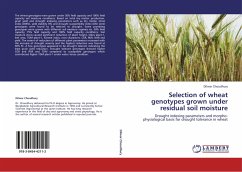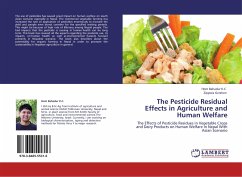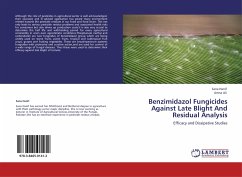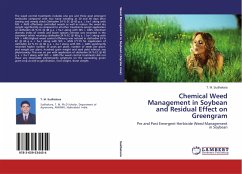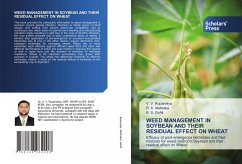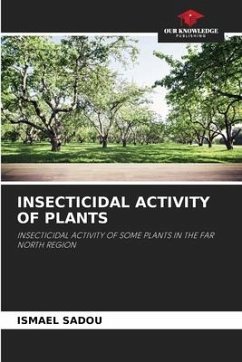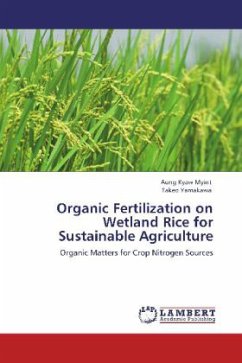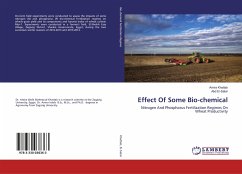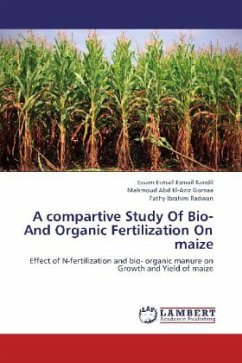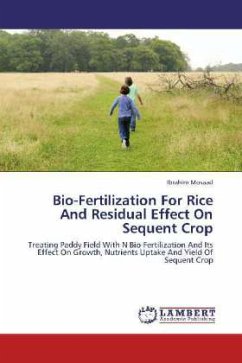
Bio-Fertilization For Rice And Residual Effect On Sequent Crop
Treating Paddy Field With N Bio-Fertilization And Its Effect On Growth, Nutrients Uptake And Yield Of Sequent Crop
Versandkostenfrei!
Versandfertig in 6-10 Tagen
45,99 €
inkl. MwSt.

PAYBACK Punkte
23 °P sammeln!
To accommodate the world s expanding population, which is projected to double by 2050, an ever-increasing production of food crops will be necessary. This must be achieved primarily by increasing productivity of currently farmed area, since suitable new land is very limited. Concomitantly, total usage of fertilizer nitrogen and application rates per unit area will increase, with accompanying environmental deterioration, unless alternative technologies are developed. An obvious good of biological nitrogen fixation research is to find ways to enable the major cereal crops to utilize biological n...
To accommodate the world s expanding population, which is projected to double by 2050, an ever-increasing production of food crops will be necessary. This must be achieved primarily by increasing productivity of currently farmed area, since suitable new land is very limited. Concomitantly, total usage of fertilizer nitrogen and application rates per unit area will increase, with accompanying environmental deterioration, unless alternative technologies are developed. An obvious good of biological nitrogen fixation research is to find ways to enable the major cereal crops to utilize biological nitrogen fixation directly as a partial or major source of their nitrogen needs. This investigation aims to study the effect of Bio-fertilizer inoculations, inorganic nitrogen applications and their interaction on the growth and nutrients uptake of rice plants and the residual effect of these inoculations on growth and nutrients uptake of sequent wheat.



